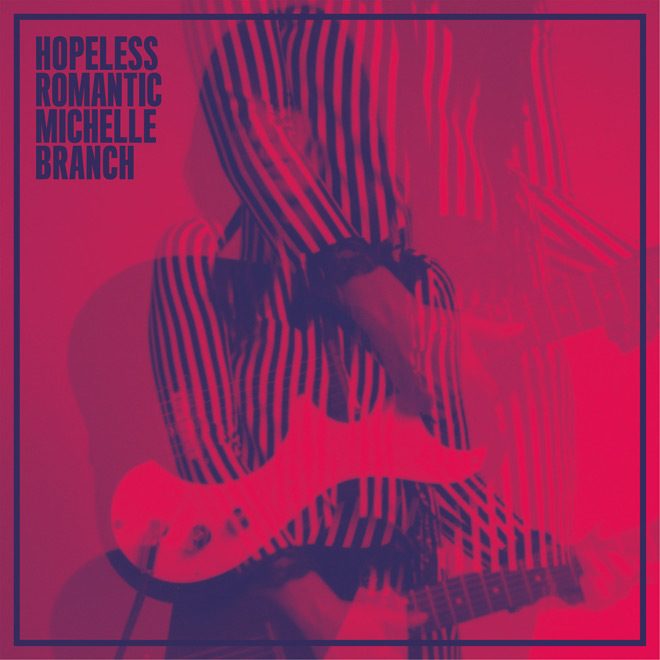
So where has Branch been? Well, in the years since Hotel Paper, she immersed herself in a slew of projects including fronting the Country band, The Wreckers, appearing in numerous movies and television shows, sporadically churning out singles and an EP, and songwriting for other artists. Now, after a long wait, on April 7th, she released her brand new solo album, Hopeless Romantic. Her fourth overall studio album, Hopeless Romantic hits the airwaves via Verve Records, while Branch returns back to her Pop Rock roots, tapping her boyfriend and Black Keys Frontman Patrick Carney to co-write and produce the album.
Whereas The Spirit Room and Hotel Paper are rife with Jack Johnson honey-sweet
Later on comes “Fault Line,” which is a cleverly written break-up number with lyrics and a synth melody that could easily fit on a Pat Benatar album. The title-track, “Hopeless Romantic,” follows suit, establishing a central phrase and yo-yoing around it. “Knock Yourself Out” may be the biggest throwback to early Branch, as she uses her classic angsty-but-optimistic vibrato to sing, “I’m just trying to figure out who I am… I hope all that I’ve learned makes sense when I get there.”
While Hopeless Romantic begins with confidence and hope, lyrics from songs like “Carry Me Home” (“I think I love you; what the hell do I know?”) and the personal “Not A Love Song” (“You drink to feel better, I’m drinking to forget.”) convey a sense that the world of Branch is not as sure and sunny as she lets on. Where early Branch might have couched a heartbreaker in an upbeat Pop melody, the Branch on this album does not hesitate to let the pain ring out through the music itself. Along with “Fault Line,” the progressive “Shadow” provides the best demonstration of Branch’s songwriting prowess and ability to deftly weave the abstract into the everyday, and the bookend track “City” is a definitive example of the album as a whole; it is melodic but not too melodic, sweet but not too sweet, exhibiting Branch’s new sound, but ultimately staying out of the way and letting her vocals and songwriting do the work.
Hopeless Romantic goes a long way toward announcing Michelle Branch as a modern Pop Rock singer-songwriter without compromising the styles and themes that brought her success early in her career. The big drums, synth melodies, and lo-fi sound walls of Patrick Carney bring Branch’s music into the now, granting just enough of the gritty Dream Pop/Sidewalk Blues edge without transforming her into something that she is not.
As a songwriter, Branch has added very palpable clouds into a landscape that has always been idealistically bright. If anything is left wanting, it is a feeling that she has not gone far enough to break through as a musician – it often feels as if she is holding back something vital. Fans of Michelle Branch will find little not to like about Hopeless Romantic, while newcomers will discover a seasoned and talented Pop artist testing the waters of the modern scene. For these reasons, CrypticRock gives Hopeless Romantic 3.5 out of 5 stars.







No comment